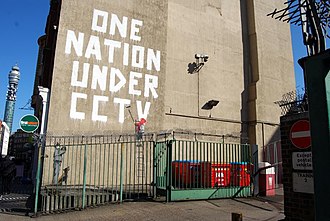
Back Privaatheid Afrikaans خصوصية Arabic Privacidá AST Gizlilik Azerbaijani গোপনীয়তা Bengali/Bangla Privadesa Catalan Soukromí Czech Privatlivets fred Danish Privatsphäre German Ιδιωτικότητα Greek

Privacy (UK: /ˈprɪvəsiː/, US: /ˈpraɪ-/)[1][2] is the ability of an individual or group to seclude themselves or information about themselves, and thereby express themselves selectively.
The domain of privacy partially overlaps with security, which can include the concepts of appropriate use and protection of information. Privacy may also take the form of bodily integrity.
Throughout history, there have been various conceptions of privacy. Most cultures acknowledge the right of individuals to keep aspects of their personal lives out of the public domain. The right to be free from unauthorized invasions of privacy by governments, corporations, or individuals is enshrined in the privacy laws of many countries and, in some instances, their constitutions.
With the rise of technology, the debate regarding privacy has expanded from a bodily sense to include a digital sense. In most countries, the right to digital privacy is considered an extension of the original right to privacy, and many countries have passed acts that further protect digital privacy from public and private entities.
There are multiple techniques to invade privacy, which may be employed by corporations or governments for profit or political reasons. Conversely, in order to protect privacy, people may employ encryption or anonymity measures.
- ^ Wells, John C. (2008). Longman Pronunciation Dictionary (3rd ed.). Longman. ISBN 978-1-4058-8118-0.
- ^ Jones, Daniel (2011). Roach, Peter; Setter, Jane; Esling, John (eds.). Cambridge English Pronouncing Dictionary (18th ed.). Cambridge University Press. ISBN 978-0-521-15255-6.